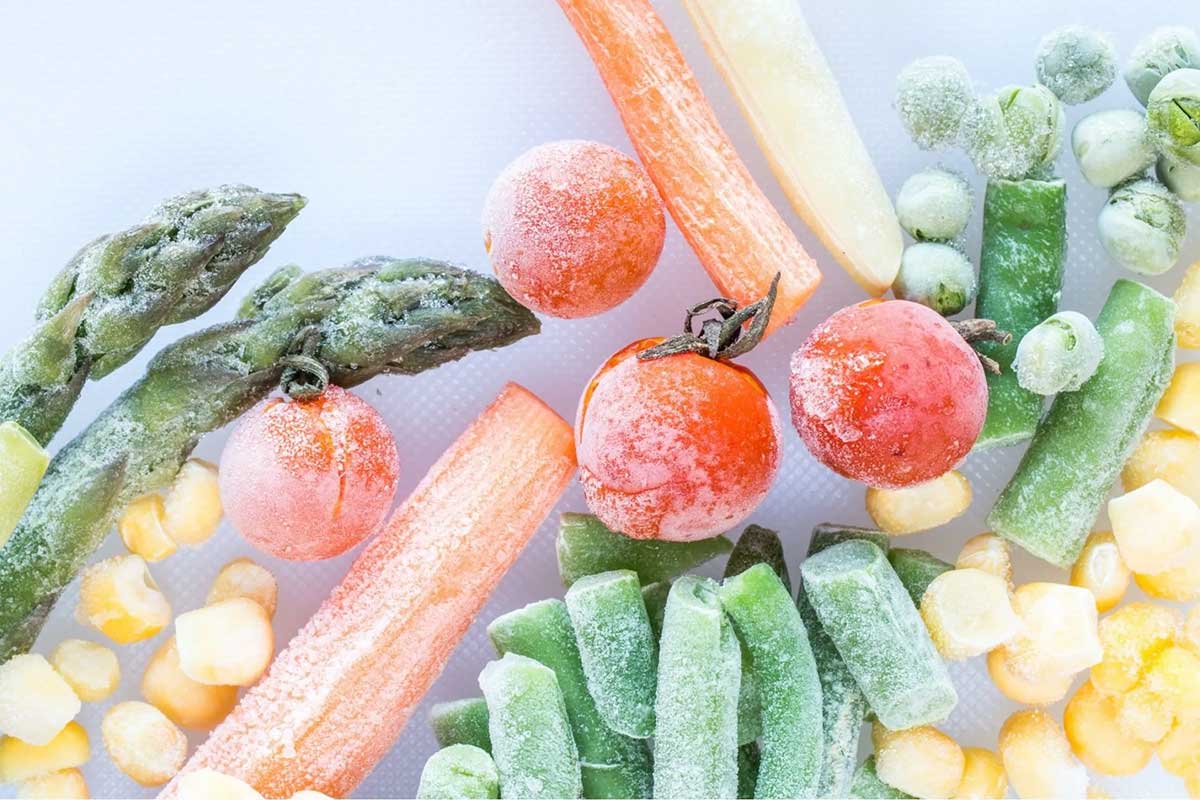Fruits and vegetables are important players in a healthy diet. The recent Dietary Guidelines recommend consuming between 5 and 9 servings of fruits and vegetables a day. These spotlight-worthy foods provide nutrients such as vitamins, minerals, antioxidants, and fiber while adding color, flavor, and texture to meals.
So, Is fresh better than frozen? Does frozen mean the nutrition is removed?
Is frozen produce a healthy addition to a meal? Let’s talk about it……
While in season, fresh produce grown locally can ensure the tastiest, healthiest product.
During off season, fresh vegetables undergo stages of processing that can take days if not weeks before they reach your grocery cart. Produce destined to be shipped is often picked before ripe, giving them less time to develop their full spectrum of nutrients on the vine. During the farm to fork long haul, which can take days to weeks, outward signs of ripening may occur, but certain nutrients are degraded due to light and heat exposure. Fresh foods lose close to half of their vitamins and minerals within days.
Frozen fruits and vegetables are a quick, affordable, and nutritious alternative. A long thought myth is that frozen fruit and vegetables aren’t nutritious. The truth is, sometimes frozen produce has a better nutritional profile than fresh that is not local nor in-season.
Really? Yes, really! Here’s why: Fruits & Vegetables meant to be frozen are picked at peak ripeness. They are washed, cut and frozen at their point of freshness within a few hours, preserving nutritional virtues before the period of degradation. Some produce meant to be frozen undergo blanching, a process during which they are submerged in very hot water for a short period of time. Blanching helps kill surface bacteria, does not need any preservatives other than temperature, and can help prevent loss of flavor, color, and texture. Blanching may lead to a small loss of vitamins, but in general, frozen produce preserve their vitamins, minerals, antioxidants, and fiber.
When purchasing frozen be cautious with ingredients. Often, frozen produce will include added salt, added forms of sugars, and high-calorie sauces. If purchasing frozen spinach for example, the only listed ingredient should be spinach. You may find many frozen products are fortified with Ascorbic acid (which is vitamin C), a water-soluble vitamin important for our body’s health. Addition of vitamin c helps replenish any lost content.
The take home message is that if shopping for fresh, aim for local and in-season, which is the highest quality. If it’s not local and is off season, frozen produce may be equal or more nutritious. Consuming frozen fruits and vegetables is a practical, cost-friendly alternative. Be mindful of ingredients such as added sugars, salts, and sauces, so read the labels carefully. Enjoy the versatility of their use and variety they add to support healthy eating.





